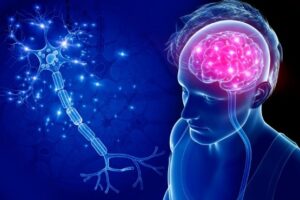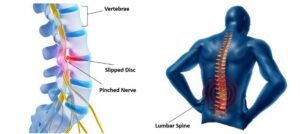When a person experiences a seizure, getting an accurate diagnosis is essential. Without knowing the exact type of seizure, treatment decisions can be delayed or inappropriate. In Greater Noida, people searching for reliable seizure care often look for the Best Seizure specialist in Greater Noida. One such trusted name is Dr. Prashant Agarwal, known for providing advanced neurological care.
For fast information, direct chat with us on WhatsApp.
Why Accurate Diagnosis Matters
Before diving into the tests, it’s important to understand why correct diagnosis is crucial:
- Different types of seizures need different treatments.
- Some seizures might be a symptom of another underlying brain condition.
- Quick, correct diagnosis reduces the risk of complications.
- It helps the doctor track the patient’s progress better.
The Best Seizure specialist in Greater Noida ensures every patient receives a proper diagnosis, leading to effective management.
Which Tests Are Typically Used to Diagnose Seizures?
Here’s a simple breakdown of tests most often recommended by neurologists:
1. Electroencephalogram (EEG)
The most important and frequently performed test for seizures is an EEG.
- What it does: It records electrical activity in the brain using small electrodes placed on the scalp.
- Why it’s useful: It can show abnormal patterns that suggest seizure activity. The EEG can assist in identifying the kind of seizure, be it generalized or focal.
- Fact: Even if no seizure occurs during the test, changes in brain waves can give valuable clues.
The Best Seizure specialist in Greater Noida often recommends this as the first diagnostic step.
2. MRI (Magnetic Resonance Imaging)
- What it does: Uses powerful magnets and radio waves to create clear images of the brain.
- Why it’s useful: An MRI can reveal brain abnormalities like tumors, scars, or malformations that might cause seizures.
- Effect: Identifying structural brain problems early ensures faster, targeted treatment.
Dr. Prashant Agarwal frequently uses MRI scans for patients with first-time seizures or complex conditions.
3. CT Scan (Computed Tomography)
- What it does: It takes quick, cross-sectional images of the brain.
- Why it’s useful: Though less detailed than MRI, it’s helpful in emergency situations to check for bleeding, tumors, or trauma.
- Benefit: Quick results make it ideal for urgent care situations, especially after a head injury.
The Best Seizure specialist in Greater Noida will suggest a CT scan if immediate imaging is needed.
4. Blood Tests
- What they do: Measure levels of minerals, electrolytes, blood sugar, and infections.
- Why they’re useful: Seizures can be triggered by imbalances or infections. Blood tests rule out these causes.
- Fact: Electrolyte disturbances like low sodium or calcium can directly trigger seizures.
Dr. Prashant Agarwal includes blood tests in routine seizure evaluations.
5. Video EEG Monitoring
- What it does: Combines continuous EEG recording with video to monitor seizures as they happen.
- Why it’s useful: Assists in determining the kind of seizure and the precise brain region affected.
- Benefit: Captures detailed information for patients with unclear diagnoses or uncontrolled seizures.
The Best Seizure specialist in Greater Noida uses this advanced test when routine EEGs fail to capture episodes.
Additional Tests (When Needed)
- Lumbar Puncture (Spinal Tap): Checks for infections in the brain and spinal cord.
- PET Scan (Positron Emission Tomography): Assesses brain metabolism.
- SPECT Scan (Single Photon Emission CT): Shows blood flow changes during seizures.
These are suggested when standard tests are inconclusive, and more precise data is required.
How These Tests Help in Treatment Planning
Once the type of seizure is identified through these tests, tailors a personalized treatment plan. It may involve:
- Anti-epileptic medication
- Lifestyle adjustments
- Surgery (in resistant cases)
- Neurostimulation therapies
The Best Seizure specialist in Greater Noida believes accurate testing improves long-term outcomes by ensuring the right treatment from the start.
Quick Facts About Seizure Diagnosis
- Seizures are not always epilepsy. Tests confirm whether it’s epilepsy or a one-time event.
- Some seizures are silent (non-convulsive) and only detectable via EEG.
- MRI is more detailed than a CT scan for detecting subtle brain changes.
- Blood sugar and electrolyte tests are crucial during a first-time seizure.
Effects of Delayed Diagnosis
Ignoring seizure symptoms or delaying testing can lead to:
- Worsening of the condition
- Increased risk of brain damage
- Complications like status epilepticus (prolonged seizures)
- Poor quality of life due to uncontrolled seizures
That’s why consulting the Best Seizure specialist in Greater Noida promptly is always advisable.
Conclusion
Seizures are complex neurological events requiring proper investigation. With advanced diagnostic tools like EEG, MRI, CT scans, and blood tests, specialists can accurately determine the type and cause of seizures. In Greater Noida, Dr. Prashant Agarwal offers these services at his modern neurology clinic.
The Best Seizure specialist in Greater Noida not only focuses on quick and precise diagnosis but also ensures that each patient’s treatment plan is personalized and evidence-based. If you or your loved ones are facing seizures, timely consultation and diagnosis can make a significant difference in managing the condition effectively.
To know more, visit https://drprashantneurosurgeon.com/.





